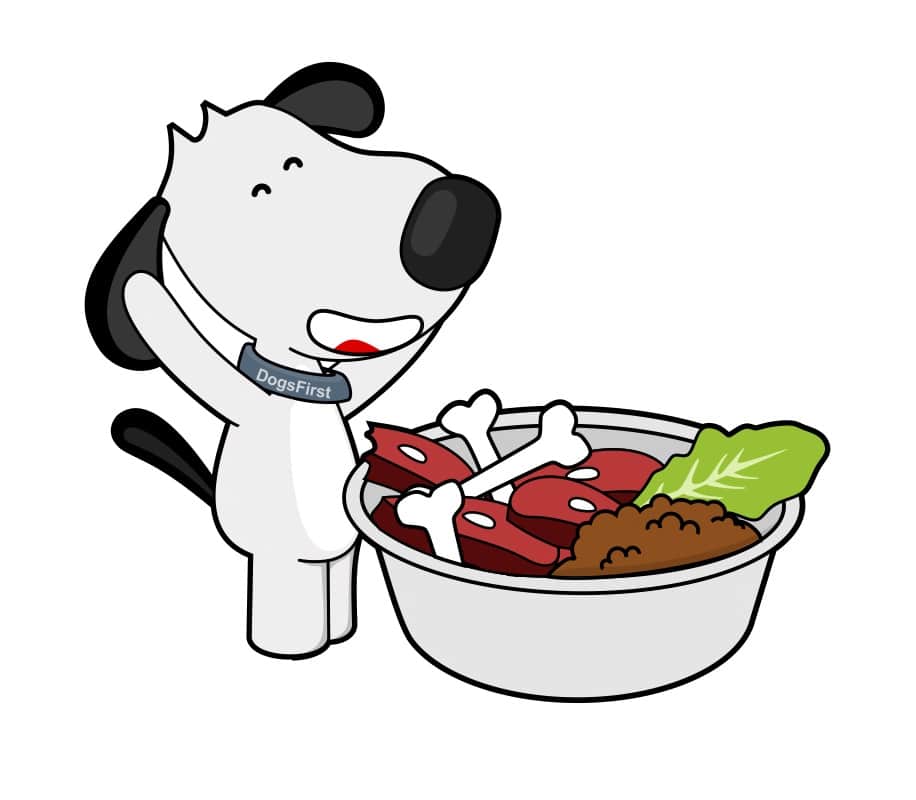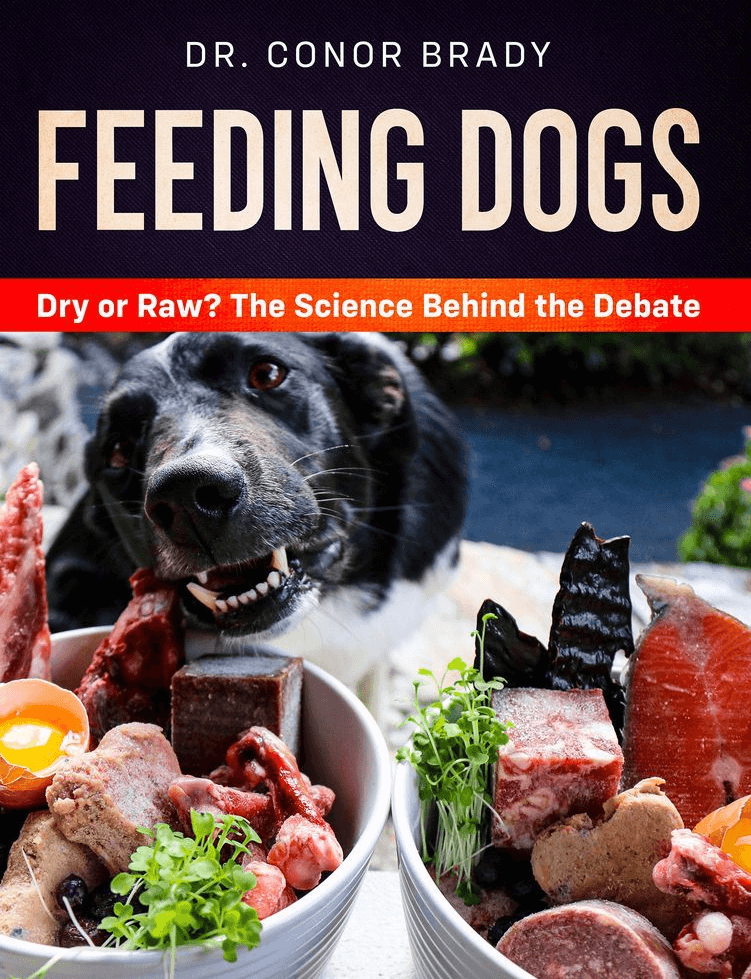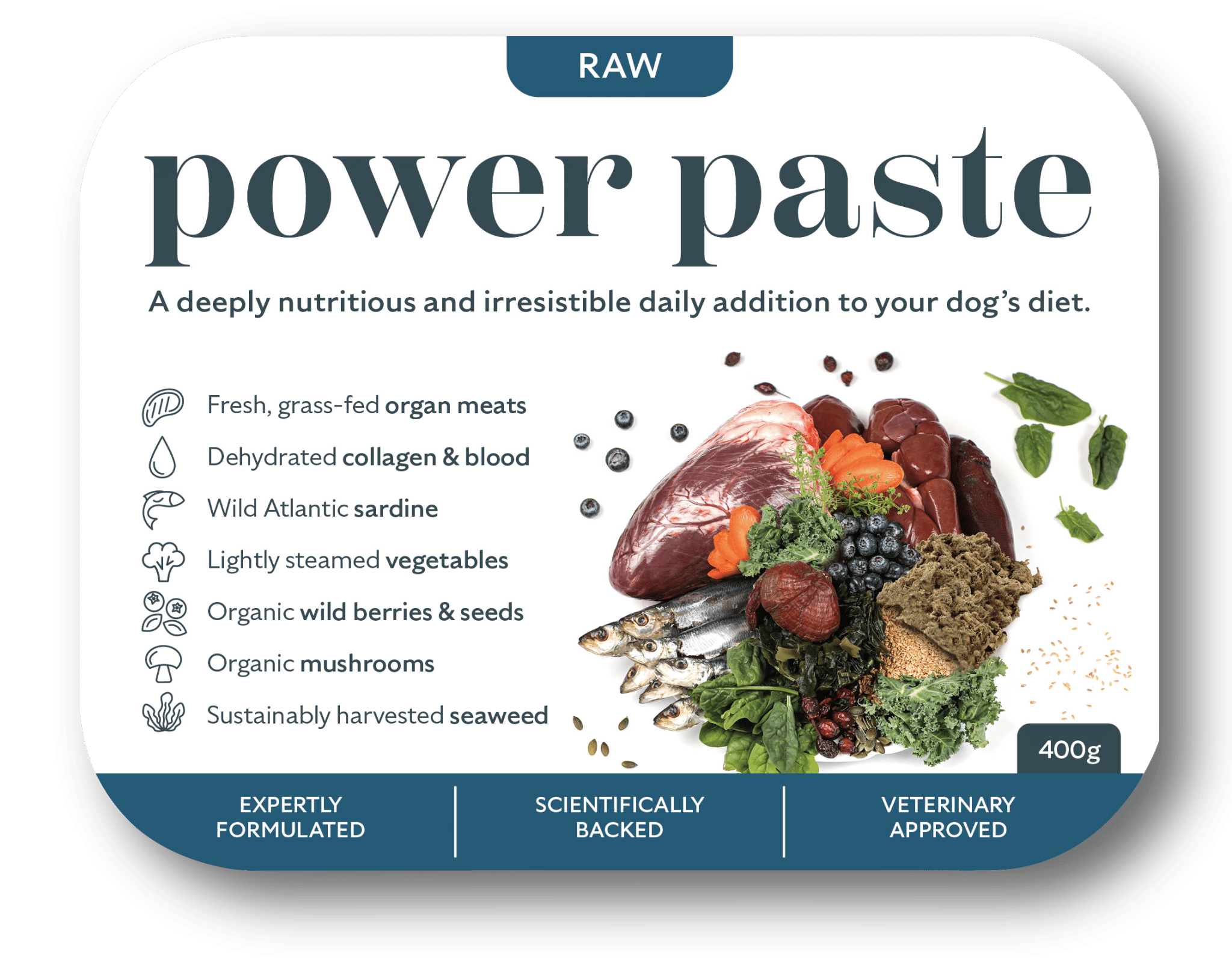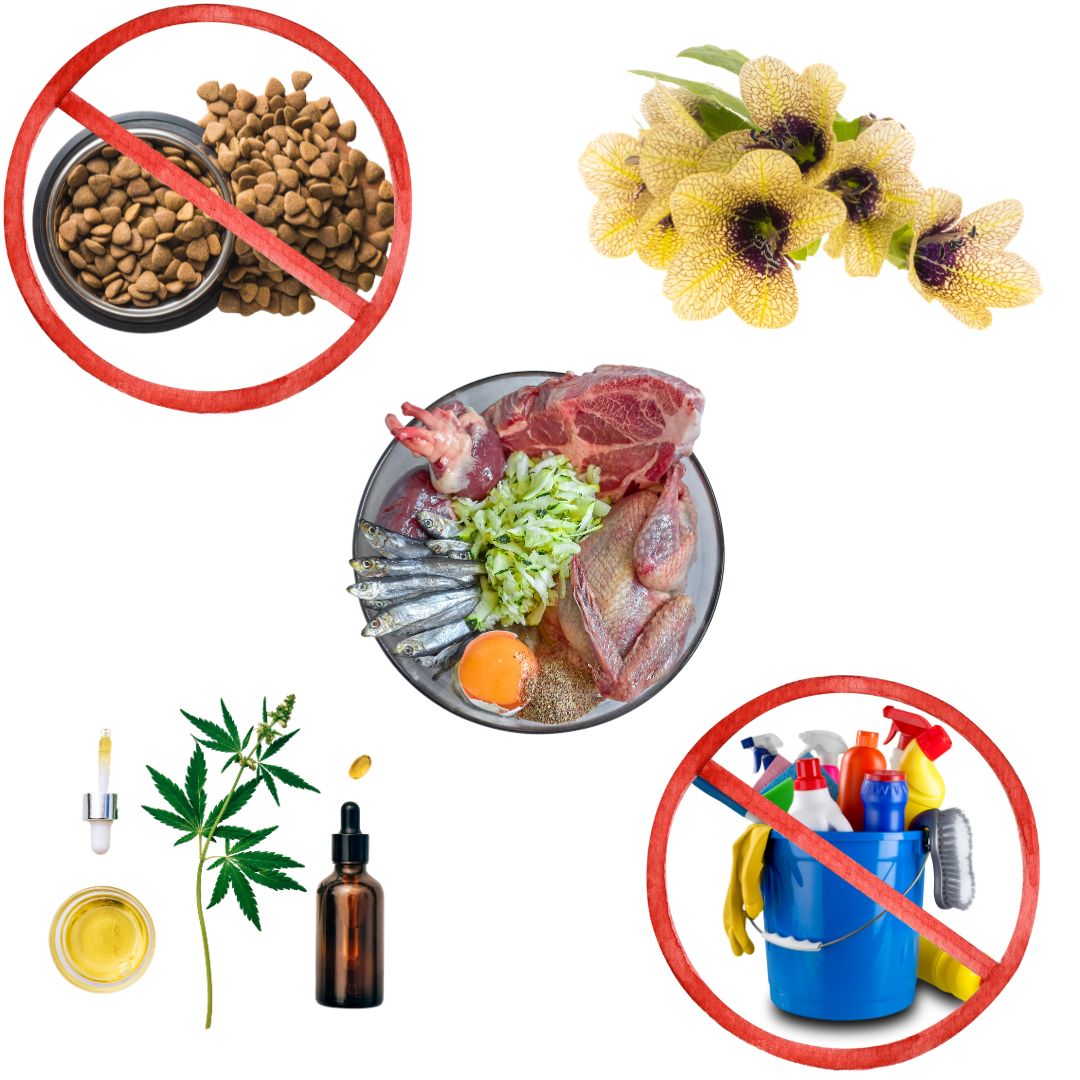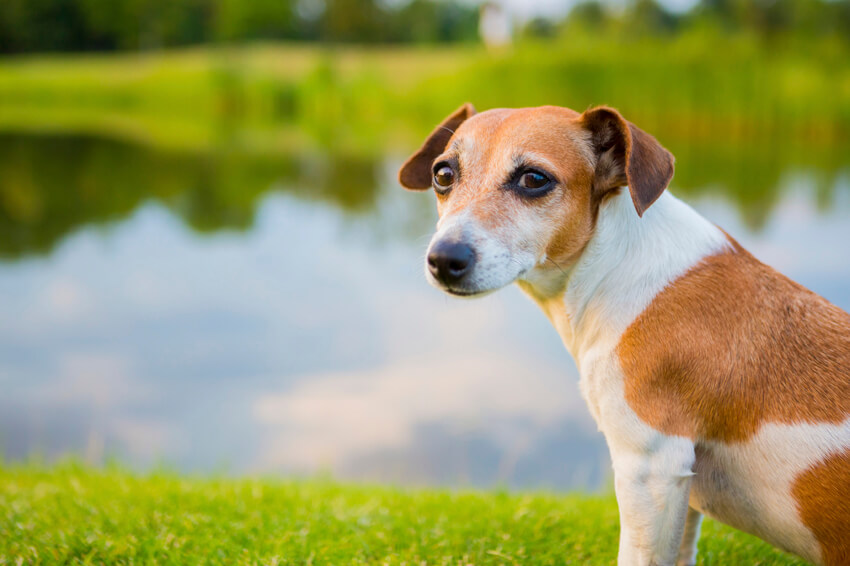If you have read the first three parts of our articles on kidney failure in dogs, you will understand the kidney’s role in the body and what happens when they stop functioning. Part two details the top foods that cause kidney failure in dogs. Article three explains how low-protein dog food would almost certainly not fix the issue. This article explains how vital it is to feed a fresh, raw diet to dogs with kidney disease. Not only to help them maintain a good quality of life with the disease but to assist in preventing it from happening in the first place.
Here’s the quick links to all the 4 articles of this series on Kidney Disease in Dogs:
- Article 1: An overview of kidney disease in dogs
- Article 2: Why dry food causes kidney disease
- Article 3: Why low protein dry food goes directly against the available science on kidney disease in dogs
- Article 4: The best diet for dogs with kidney disease (this article)
In this article, we will discuss:
Remove the most common causes of kidney in dogs
Their kidneys are failing, so we need to reduce their workload. First up is anything that causes an immune reaction as the debris from these reactions clogs the kidney highways. This is the most overlooked step in dogs with kidney failure (after bad teeth). Thus you need to remove:
- Wheat gluten (dry foods, store-bought dog treats, bread, pasta, dental bone type gunk – all potential foods that cause kidney failure in dogs )
- Dairy
- Cooked meat
- Pet store treats, including dental sticks, rawhide chews, etc.
- Needless chemicals including chemical flea and worm treatments, kennel cough treatments, annual boosters for dogs already adequately vaccinated for viruses, etc.

Is low phosphorus dog food important for kidney failure?
As in humans, an appropriate, fresh diet is one of the first things considered with kidney patients. When formulating a fresh diet for dogs with kidney failure, the first thing you might hear is to watch the phosphorus contents of the ingredients you use, and you may be advised to switch to a low phosphorus dog food. Your vet may even mention phosphate binders. One of the kidneys’ many roles is to remove phosphorus from the body. Once kidney function is impaired, phosphorus will accumulate in the blood. This elevated phosphorus in the bloodstream can cause lethargy and loss of appetite. Phosphate binding drugs will bind excess phosphorus in the intestinal tract, which will not be absorbed into the bloodstream. However, more recent evidence reveals the unnatural phosPHATEs in dry pet food (the stuff they add, such as calcium diphosphate) that hammers the kidneys (studies of cats in part two). The body rarely likes a mineral supplement. They are not treated equally. Natural phosphorus (found in real food) is not shown to impact kidney function (in the cats in those studies). This calls into question the early use of phosphorus binders in dogs fed real food. Be guided by the blood results here.
Why is inorganic phosphorus such an issue?
Minerals are inorganic, meaning they are not from the land of the living. As a result, the gut membrane barrier does not trust them and is less keen to allow them to pass. The result is the non-chelated supplement form is poorly utilised.
While they can make chelated minerals in the lab, they are costly, so in general, they are less popular and never used in pet food. The minerals used in pet food are cheaper, such as oxides such as iron oxide, a.k.a. rust, and zinc oxide, which dogs notoriously poorly absorb; hence, coupled with the low protein food, they have bad coats. As there are no maximums on these minerals in the pet food world, they are free to use LOTS of the oxide to make sure your dog might get what he needs. See, making pet food is easy!
Napoli et al. (2007) divided 183 women into three groups – one group (the ‘diet’ group) consumed at least 70% of their daily calcium from real food, and another (the ‘supplement’ group) consumed at least 70% of their calcium from tablets or pills. A third whose calcium-source percentages fell somewhere in between these ranges. They found that the ‘diet’ group took in the least calcium, an average of 830 milligrams per day. Yet, this group had higher bone density in their spines and hipbones than women in the ‘supplement’ group, who consumed about 1,030 milligrams per day.
We know this is the case in dogs too. They can eat raw meaty bones until the cows come home (missing a leg or two), and they don’t blow out their calcium requirements, turning into a rigid statue, so allow your pup to munch on calcium supplements; you might have a different result.
I no longer push the low phosphorus concept. I do not have a supportive study. If you are formulating your own raw dog food diet for kidney failure and are concerned about phosphorus, please check this table. I’ve coloured them green (low), orange (medium) and red (avoid if possible).

Is low sodium important when my dog has kidney disease?
As we learned in part one, a vital job of the kidneys is to remove excess water from the body by filtering it through the blood. This process requires a balance of sodium and potassium, so if there is too much salt in the diet, this can affect the balance and lead to impaired kidney function; they will remove less water, and this can result in high blood pressure, which puts even more pressure on the kidneys. Dogs who already have kidney disease should most definitely not be eating a diet high in salt. Dogs eating ultra-processed, dry food, without a doubt, will be consuming far too much salt, as mentioned in part two.
The vet may encourage you to move to dry food with reduced sodium, which makes sense, but the issue is that the ingredients are still not what a meat eater needs, adding more pressure to the kidneys. (Part two explains in more detail why dry food is not the answer for kidney disease). So instead, feed a fresh food diet, and there will be no concerns of high sodium levels as fresh meat, fish, and vegetables are naturally low in salt.
The importance of organic meat for a dog with kidney Failure
In my opinion, a raw diet for dogs with kidney disease is the best possible diet. Unless they are end-stage kidney disease, they can and should be fed a normal raw diet. The most important thing to consider is that it needs to be as organic as possible.
The problem is cheap meats can contain phosphates. For example, cheap breast meat is injected with phosphates to suck up water, making the crappy food company more cash per kilo (it’s why many cuts of processed pork spit on the pan). As a result, so many raw dog foods are made on the cheapest chicken available. This is somewhat inevitable as producers are rarely rewarded for using higher quality meat in their mixes (you can’t tell, and your dog doesn’t care).
Chicken and turkey are the worst…
I don’t recommend chicken or turkey in dogs with kidney failure but particularly I don’t recommend non-organic versions of these meats. They can contain, at least in the U.S., OTC (oxytetracycline), an antibiotic derivative that accumulates in their bones. Di Cerbo et al. (2017) suggest that bio-accumulation then consumption of OTC may be an underlying cause for many of the inflammatory pathologies that plague dogs today. Poultry bone meal is usually the “meat” in dry pet food (though they tend to leave out the bone word on their label, funny that!), but raw dog foods use vast amounts of cheap carcass too.
If you have a big dog, you can formulate your own raw dog food using our article on DIY raw dog food, finding organic meat when and where you can.
Authors note: I still seem to favour red meats over white in dogs with kidney failure! It’s a complete hangover from the phosphorus thing that I spent the first half of my career believing, but it’s not going to do him any harm either way
Excellent additions for dogs with kidney failure
a) Kidney
You may be wondering, can dogs eat kidneys? It is a must! Kidney is fantastic organ meat for dogs with kidney disease. This is called organotherapy, like feeds like in dogs. Feed 3-5% of the diet.
b) Fresh Eggs
Add eggs to your dog’s diet; they’re great, easy to digest protein, packed full of vitamins such as B12, Vitamin A, and fatty acids – all vital for those struggling kidneys.
c) Omega 3 fatty acids
Omega 3’s are vital to support a dog with chronic kidney disease. Studies show that omega-3 fatty acids can significantly reduce the risk of end-stage kidney disease and are associated with a lower risk of proteinuria (high protein levels in the urine). Clean fish oil is best fed in their whole, fresh form, such as sardines or mackerel. Dogs don’t need a lot; as little as 100g a week for a 15kg dog would be fine. Find them online; many raw dog food manufacturers will now sell little bags. For bigger or multidog owners, buy a 5kg or 10kg box from a fish producer.

Two vital points to remember….
a) Filtered water is a must for those kidneys.
Dog’s water needs to be filtered or distilled, especially vital for dogs whose kidneys are already struggling. Check out this article to show why tap water is not recommended in sick (or even healthy) dogs (or humans!).
b) Clean up any tartar on those teeth
As we highlighted in Part two, you need to get those teeth nice and clean. Studies show periodontal disease and kidney failure go hand in hand. The best way to keep your dogs’ teeth clean is to give them some texture in their food, which in dogs comes from raw, meaty bones.
For those that can’t eat / feed raw meaty bones, there is Canident. This supplement is my go to. Not only deeply nutritious and antiinflammatory, good now for kidneys, but it removes tartar from their teeth in 5-8wks to the enormous benefit of the dogs systemic inflammatory levels. And it really works folks. It has a money-back guarantee if it doesn’t. Only €25 for 300g. Much cheaper and safer than a dental.
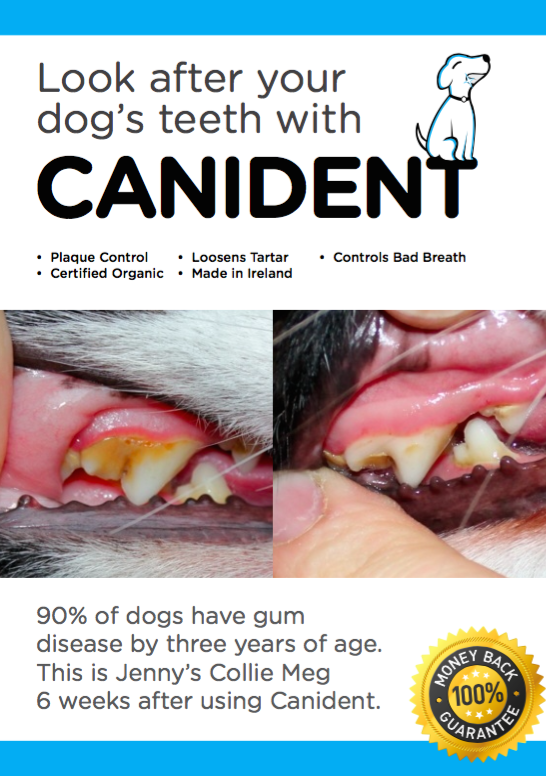
What supplements are good for dogs with kidney disease?
1. B vitamins
Vital to add a B complex for dogs with kidney disease. B vitamins are water-soluble, meaning they are flushed from the body much more quickly in a dog with kidney disease as they may be drinking and urinating more. Sadly, due to declining soil quality from intensive farming, feeding a fresh diet will not necessarily ensure your dog will get a good supply of B vitamins naturally (especially B12), so supplementation with a B vitamin complex, is necessary for dogs with CKD.
2. Vitamin A
This vital vitamin lubricates the kidneys. The recommended dose for dogs is 100–200 IU/kg body weight (BW) per day. Be Careful with dosage. As a fat-soluble vitamin, up to 90% of excess vitamin A is stored in the liver. Find plain Vitamin A powder on Amazon. Speak to your vet before undertaking vitamin supplementation.
3. Vitamin C (Ascorbic Acid)
As the blood becomes quite alkaline with kidney failure, it will help balance the blood’s pH levels. Vitamin C is also a natural diuretic, enhancing the flow of liquids through the kidneys. Great vitamin C additions include parsley, juniper berries, and good old cranberries; get them in there). Include around 100-200 mg of Vitamin C per kg of BW daily. Find plain Vitamin C Powder on Amazon. Speak to your vet first before undertaking vitamin supplementation.
4. Herbs
There are lots of herbs that are certain to boost kidney function. Many act as a diuretic (flushing the kidneys, equivalent to some of the meds offered by vets). They also contain a wide range of compounds unique to those plants, all backed up by copious studies. These include the mild and more easily sought, such as dandelion, parsley, and couch grass, to the even more effective (though less common) such as Rehmannia and bearberries.
Warning: some of these herbs are so powerful they may clash with conventional meds your vet may have already prescribed for your pet. Please take heed of the warnings mentioned in the article before embarking if your dog is on kidney meds.
For more information, check out our article “Top 5 Herbs for Dogs With Kidney Disease“.

Conclusion
When it comes to chronic kidney disease, there is no way to reverse the damage; however, a fresh, species-appropriate diet with added supplementation will help support the kidneys. In addition, it may assist in slowing down the progression of this disease, leaving your dog to lead a good quality of life.
FAQ’S
1. What are the best treats for dogs with kidney disease?
Dogs with kidney disease need to avoid all cheap, ultra-processed shop-bought treats and jerky-type treats that are usually high in salt, additives, and chemicals. Always go for treats that contain one meat ingredient. Making your own is excellent as you know what they contain. Cooking strips of meat (whichever meat your dog can tolerate) low and slow in the oven (if you have a dehydrator, even better!) and adding some of the herbs mentioned above is a fantastic, healthy treat.
2. What to feed a dog with kidney failure who will not eat
Firstly, we would always recommend that if any dog stops eating and this is out of character, always best to pop them along to the vet. However, if the dog has had the all-clear from the vet, they are being picky or just feeling under the weather, then there are a few things you can try to get them eating. Bone broth is excellent, pre appetent, and packed full of nutrients (make your own or buy pre-made from raw dog food companies. Never buy bone broth for humans as it may contain onions and high levels of salt). Also good to soothe the gut if the dog has an upset tummy, which can occur with kidney disease. If you are feeding raw, you could also try cooking the food lightly; this adds a different texture, warmth, and more inviting smells for your dog.
3. Do I need to reduce protein for my dog with kidney disease?
As discussed in length in article three, unless your dog is in end-stage kidney disease or proteinuria, it is not necessary to drop the protein content of your dog’s diet when they are diagnosed with kidney disease. The protein they eat should always be fresh, species-appropriate food, never ultra-processed, which contains de-natured, poor quality sources of protein.
Consult for your dog with kidney disease
If you have read the series of articles on kidney disease in dogs and feel you need some more assistance on how to support your dog with kidney disease, we offer consults, and we would love to help you and your dog

